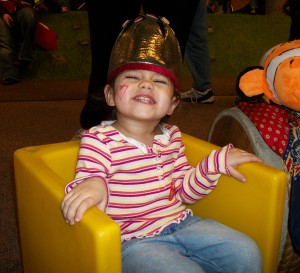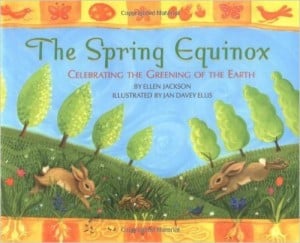 This month’s topic in the Public Square is women in leadership. I could write forever about how important I think women in public Pagan leadership is, but there’s only so much I can do to change what’s happening right now. But changing the future – as a parent, that’s something that I can have a great effect on.
This month’s topic in the Public Square is women in leadership. I could write forever about how important I think women in public Pagan leadership is, but there’s only so much I can do to change what’s happening right now. But changing the future – as a parent, that’s something that I can have a great effect on.
One of my biggest priorities – behind raising healthy, happy adults – is to raise my daughters as leaders. A lot of progress has been made in modern American culture regarding equality of the sexes, but there’s still a long way to go. Little girls who show leadership potential are called ‘bossy’, and encouraged to be quiet and let others have their turn. Of course, every child should be taught to share – but how are our daughters going to learn to lead if we never let them try it out?
Luckily, unlike many religions, our Pagan traditions largely have built-in gender equality in leadership – in theory. Most pantheons have Goddesses of sovereignty or who are authoritative in their domain, and many groups are led by a High Priestess. Out of the three groups I’m involved with locally, two are led by women and the third has a woman involved in leadership, which is a far cry from the Lutheran church I grew up in. I am so happy to take my children to Circle or ADF ritual, knowing that they’re watching women in positions of authority; when I grew up with my mother bemoaning that we had no religious man to lead our household. Many Big Name Pagans, people that many look to for leadership, are women. Pagans are really ahead of the game here.
But that doesn’t mean we can sit back on our laurels and keep promoting the same cultural attitudes that hurt women in other faiths in our own households. I try so hard to overcome my cultural biases, but even I find myself occasionally telling my daughter to just let me handle something, or to let someone else take the lead if it will avoid a conflict. In fact, I feel like I’ve taught her many more strategies for conflict avoidance than I have for actual leadership – where conflicts must be recognized and dealt with. This is something all Pagan parents can work on, that will contribute enormously to the future of our traditions; and through our children who decide to take other paths, to the future of other faiths and society in general.
I know that sometimes change seems impossible. When we in the United States look at our government filled with men, interfaith tables with mostly male pastors, boardrooms with ridiculous woman-to-man ratios, it can seem impossible for our small traditions to overcome that. But sometimes all it takes is the rising of a new generation, with a different set of values and cultural experiences – just look at the sudden change in public opinion regarding equal marriage rights! If we can equip our daughters to be great leaders, and teach our sons to respect the quality leadership of any person regardless of gender, we will make a great contribution to the future of our society.












